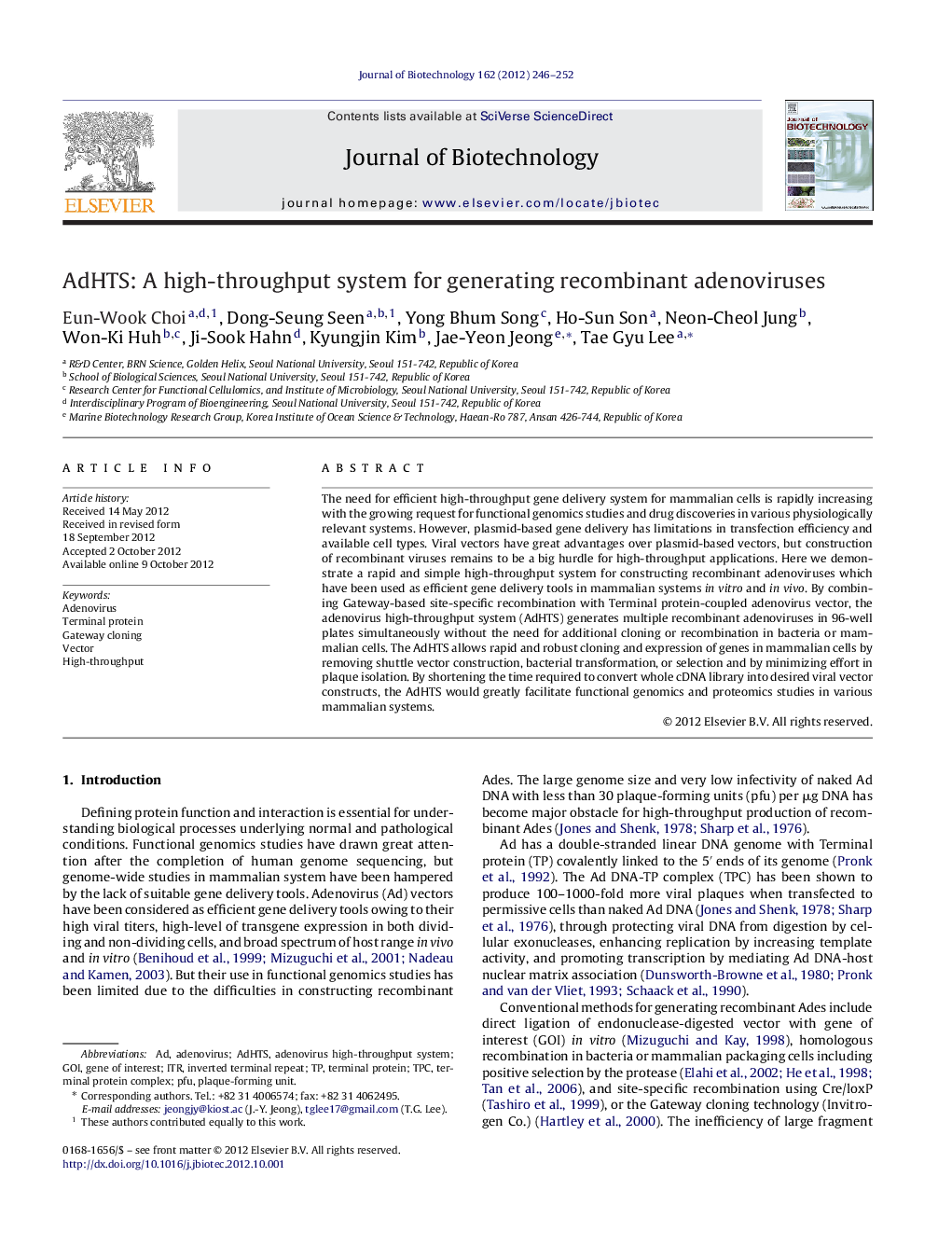| Article ID | Journal | Published Year | Pages | File Type |
|---|---|---|---|---|
| 23626 | Journal of Biotechnology | 2012 | 7 Pages |
The need for efficient high-throughput gene delivery system for mammalian cells is rapidly increasing with the growing request for functional genomics studies and drug discoveries in various physiologically relevant systems. However, plasmid-based gene delivery has limitations in transfection efficiency and available cell types. Viral vectors have great advantages over plasmid-based vectors, but construction of recombinant viruses remains to be a big hurdle for high-throughput applications. Here we demonstrate a rapid and simple high-throughput system for constructing recombinant adenoviruses which have been used as efficient gene delivery tools in mammalian systems in vitro and in vivo. By combining Gateway-based site-specific recombination with Terminal protein-coupled adenovirus vector, the adenovirus high-throughput system (AdHTS) generates multiple recombinant adenoviruses in 96-well plates simultaneously without the need for additional cloning or recombination in bacteria or mammalian cells. The AdHTS allows rapid and robust cloning and expression of genes in mammalian cells by removing shuttle vector construction, bacterial transformation, or selection and by minimizing effort in plaque isolation. By shortening the time required to convert whole cDNA library into desired viral vector constructs, the AdHTS would greatly facilitate functional genomics and proteomics studies in various mammalian systems.
► We designed a high-throughput system for generating recombinant adenoviruses. ► Gateway recombination was combined with Terminal protein-linked adenoviral vectors. ► Recombination, transfection, and virus production is conducted in 96-well plates. ► Our system allows rapid construction of recombinant adenoviruses by removing bacterial manipulation steps.
